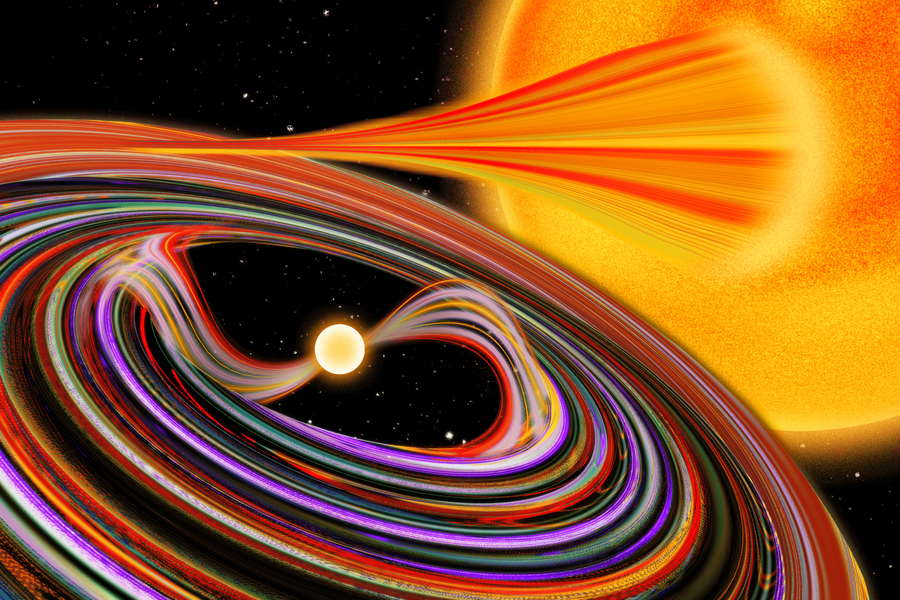ESA’s Rosetta spacecraft has provided evidence for a daily water-ice cycle on and near the surface of comets. This story is mirrored from the main ESA web portal. Comets are celestial bodies comprising a mixture of dust and ices, which they periodically shed as they swing towards their closest point to the Sun along their highly eccentric orbits. As sunlight heats the frozen nucleus of a comet, the ice in it – mainly water but also other ‘volatiles’ such as carbon monoxide and carbon dioxide – turns directly into a gas. This gas flows away from the comet, carrying dust particles along. Together, gas and dust build up the bright halo and tails that are characteristic of comets. Rosetta arrived at Comet 67P/Churyumov–Gerasimenko in August 2014 and has been studying it up close for over a year. On 13 August 2015, the comet reached the closest point to the Sun along its 6.5-year orbit, and is now moving back towards the outer Solar System. A key feature that Rosetta’s scientists are investigating is the way in which activity on the comet and the associated outgassing are driven, by monitoring the increasing activity on and around the comet since Rosetta’s arrival. Scientists using Rosetta’s Visible, InfraRed and Thermal Imaging Spectrometer, VIRTIS, have identified a region on the comet’s surface where water ice appears and disappears in sync with its rotation period. Their findings are published today in the journal Nature. “We found a mechanism that replenishes the surface of the comet with fresh ice at every rotation: this keeps the comet ‘alive’,” says Maria Cristina De Sanctis from INAF-IAPS in Rome, Italy, lead author of the study. The team studied a set of data taken in September 2014, concentrating on a one square km region on the comet’s neck. At the […]
from Rosetta - ESA's comet chaser » Rosetta - ESA's comet chaser http://ift.tt/1iMfful
via IFTTT
Tools and thoughts!
Subscribe to:
Post Comments (Atom)
NASA’s IXPE Measures White Dwarf Star for First Time
This artist’s concept depicts a smaller white dwarf star pulling material from a larger star, right, into an accretion disk. Earlier th...

-
NASA has exercised the second option of its Information Technology and Multimedia Services (ITAMS) contract with DB Consulting Group, Inc., ...
-
4 min read NASA X-ray Telescopes Reveal the “Bones” of a Ghostly Cosmic Hand Credit: X-ray: NASA/CXC/Stanford Univ./R. Romani e...

No comments:
Post a Comment